CVHS teachers enforce no listening devices in classrooms
CVHS Teacher, Julea Brode, hangs “No AirPods In Class” sign for students to see when they walk in
 CVHS teachers have started what they call a “No Airpods Zone” in their classrooms. This new rule does not allow students to wear AirPods, wireless headphones or earbuds in their classrooms. Though this isn’t something entirely new at CVHS, the rule has become more enforced due to the rise of students utilizing listening devices throughout the school.
CVHS teachers have started what they call a “No Airpods Zone” in their classrooms. This new rule does not allow students to wear AirPods, wireless headphones or earbuds in their classrooms. Though this isn’t something entirely new at CVHS, the rule has become more enforced due to the rise of students utilizing listening devices throughout the school.
A survey conducted by Upstream News polled 149 students over their experience with listening devices. 68.4% of students say that the usage of listening devices is not permitted in three or more classes of their schedule, affecting many as almost 70% of students that have reported using listening devices through school hours. Many students are curious as to what has spurred the popularity of this rule.
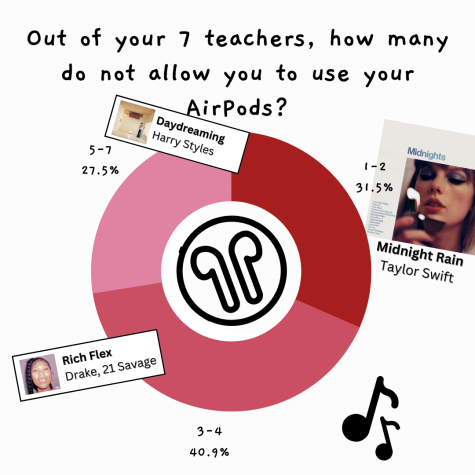
With music affecting nearly everyone’s lives at some point in time, research has been conducted to analyze its effects in various facets. Studies have found that teenagers specifically have a strong social and emotional dependence on the constant availability of music at their disposal through numerous forms of media. This can be attributed to the rising popularity and even reliance on music many adolescents are developing to better sustain their mental state and attention span.
“I wake up and listen to music; all the way to school, I use my AirPods; during lunch I use my AirPods; when I get home and do my homework I use my AirPods,” junior Aito Okamoto said.
Since 43.6% of surveyed CVHS students listen to music a minimum of four hours a day, various reasons motivate students to consume music.
“I’d say listening to music boosts my productivity by at least a significant amount of time,” senior Thomas Martinez said.
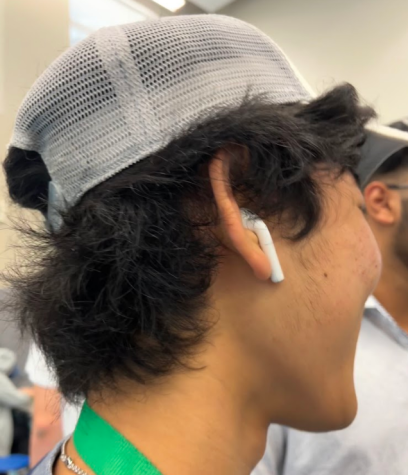
This past year, WebMD researched the effects of listening to music while studying. Though it credits music with numerous educational benefits, it also expresses concerns that listening to music is not a cure-all solution. Music does not provide a remarkable amount of spatial reasoning and primarily just helps increase your mood for a short period. Despite sounding like it makes you smarter, the Mozart Effect only produces short-term results in spatial reasoning and information processing, not general intelligence. Although the process of listening to music doesn’t necessarily bring a drastic brain boost students may desire, roughly 70% of students use their AirPods or other listening devices during class. When discussing the perspectives of those who lead the classroom, a few key observations can be made, specifically students’ lack of a sense of ‘time and place’
“I didn’t have an issue with AirPods, I have an issue with how people use them,” CVHS teacher Joshua Garcia said.
While students may listen to music in class to focus, there is often an overlap with lecture time where teachers require the ears of their audience. The survey reports that 42.2% of students were asked one to five times in the previous two weeks to put away their listening devices. This has become problematic as Healthline finds that “an important part of music’s impact lies in its power to distract,” meaning it can take away from content comprehension rather than maximizing it, raising concerns among many teachers.
Even though many teachers do not allow listening devices in their classrooms, the music itself isn’t ultimately forbidden. Some teachers do make up for it by playing Lo-fi, background noise or other music during independent work time, putting in the effort to allow students to focus the best they can, specifically when the time is right.
At the end of the day, the influence of music through listening devices in the classroom is a double-edged sword, and students have the responsibility to understand how one side can always be sharper than the other.
“It’s really up to [you], because it’s your choice if you want to listen to music instead of what the teacher says; you really put that on yourself,” Okamoto said.
Your donation will support the student journalists of Carnegie Vanguard High School. Your contribution will allow us to cover our annual website hosting costs and fund field trips, competition fees, and equipment. We appreciate your support!

Roxell is a senior at CVHS. She loves sports of all kinds, especially soccer and volleyball, and even runs some sports clubs here at Carnegie. She also...

Cindy Cui is a senior at CVHS. In her free time, she enjoys cooking for her friends and family. On the weekends, she also enjoys playing tennis at night...


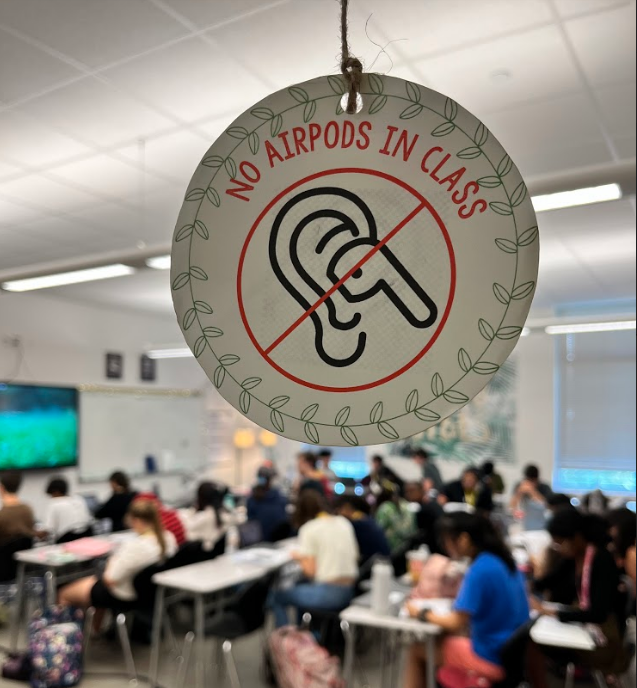
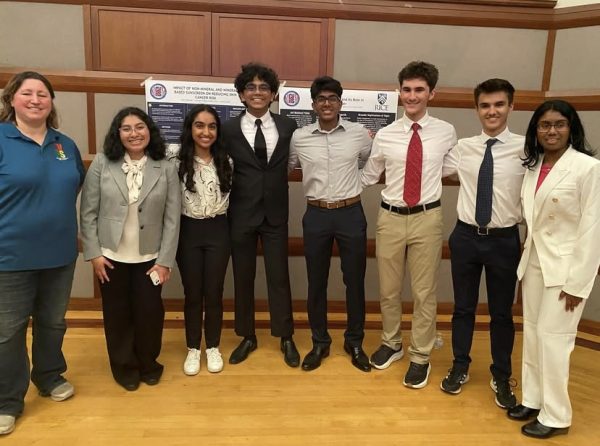
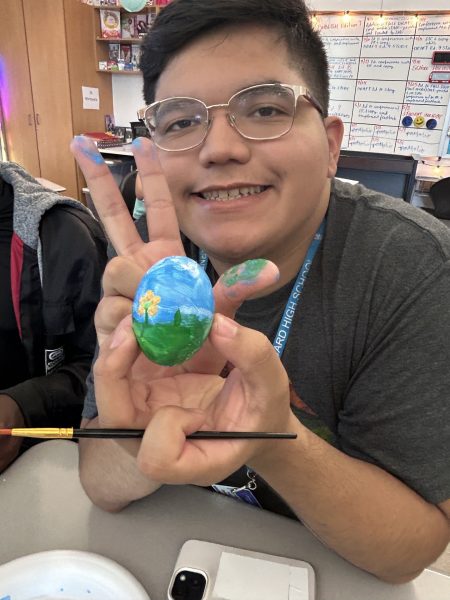


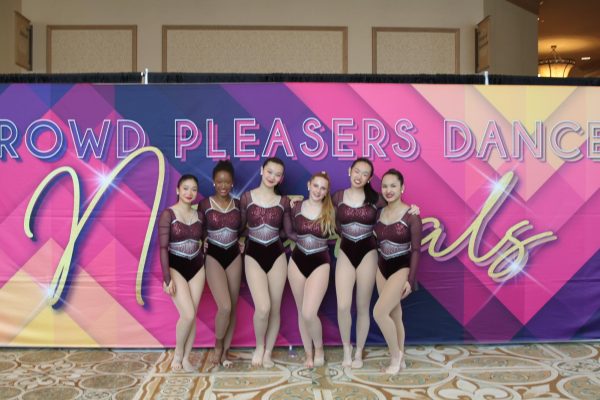
Rinn Wilson • Sep 23, 2022 at 4:47 pm
I enjoy the way you incorporated the differing opinions on the AirPod band as well as how you incorporated your research from your survey!! Lovely work!! 😀
Audrey Piczak • Sep 23, 2022 at 10:09 am
as someone addicted to their airpods i thoroughly appreciate this representation !!!